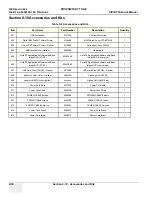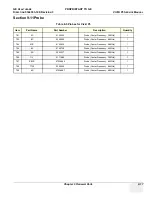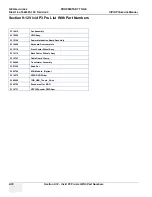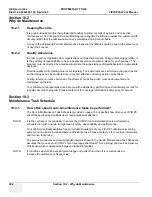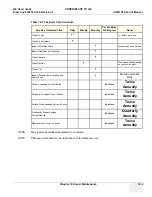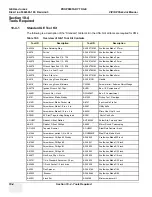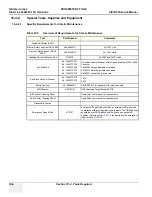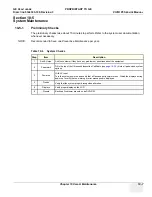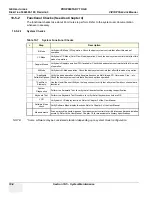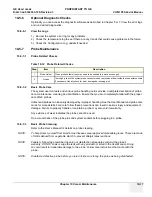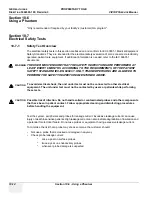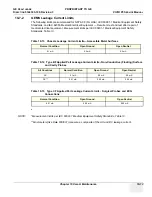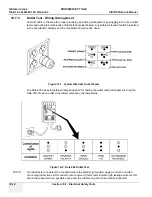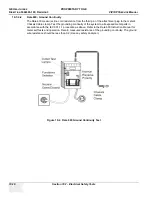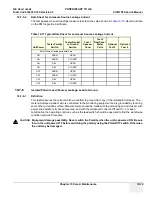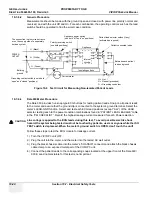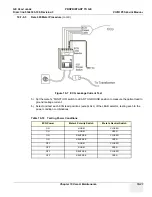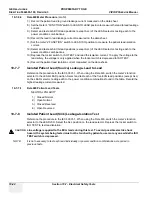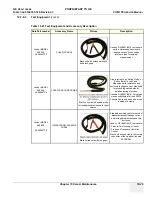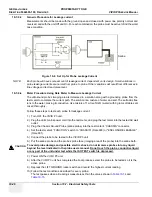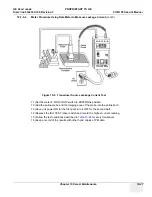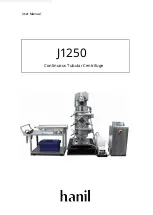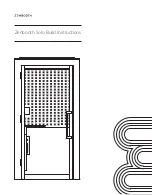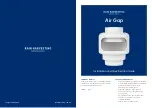
GE H
EALTHCARE
PROPRIETARY TO GE
D
IRECTION
5344303-100, R
EVISION
3
VIVID P3 S
ERVICE
M
ANUAL
10-12
Section 10-6 - Using a Phantom
Section 10-6
Using a Phantom
"Only recommended if required by your facility's (customer) QA program".
Section 10-7
Electrical Safety Tests
10-7-1
Safety Test Overview
The electrical safety tests in this section are based on and conform to IEC 60601-1 Medical Equipment
Safety Standards. They are intended for the electrical safety evaluation of cord-connected, electrically
operated, patient care equipment. If additional information is needed, refer to the IEC 60601-1
documents.
Test the system, peripherals and probes for leakage current. Excessive leakage current can cause
injury or death in sensitive patients. High leakage current can also indicate degradation of insulation and
a potential for electrical failure. Do not use probes or equipment having excessive leakage current.
To minimize the risk that a probe may shock someone the customer should:
•
Not use a probe that is cracked or damaged in any way
•
Check probe leakage current:
*
once a year on surface probes
*
twice a year on endocavitary probes
*
whenever probe damage is suspected
WARNING
WARNING
THE USER MUST ENSURE THAT THE SAFETY INSPECTIONS ARE PERFORMED AT
LEAST EVERY 6 MONTHS ACCORDING TO THE REQUIREMENTS OF THE PATIENT
SAFETY STANDARD IEC-EN 60601-1. ONLY TRAINED PERSONS ARE ALLOWED TO
PERFORM THE SAFETY INSPECTIONS MENTIONED ABOVE.
CAUTION
To avoid electrical shock, the unit under test must not be connected to other electrical
equipment. The unit under test must not be contacted by users or patients while performing
these tests.
CAUTION
Possible risk of infection. Do not handle soiled or contaminated probes and other components
that have been in patient contact. Follow appropriate cleaning and disinfecting procedures
before handling the equipment.

